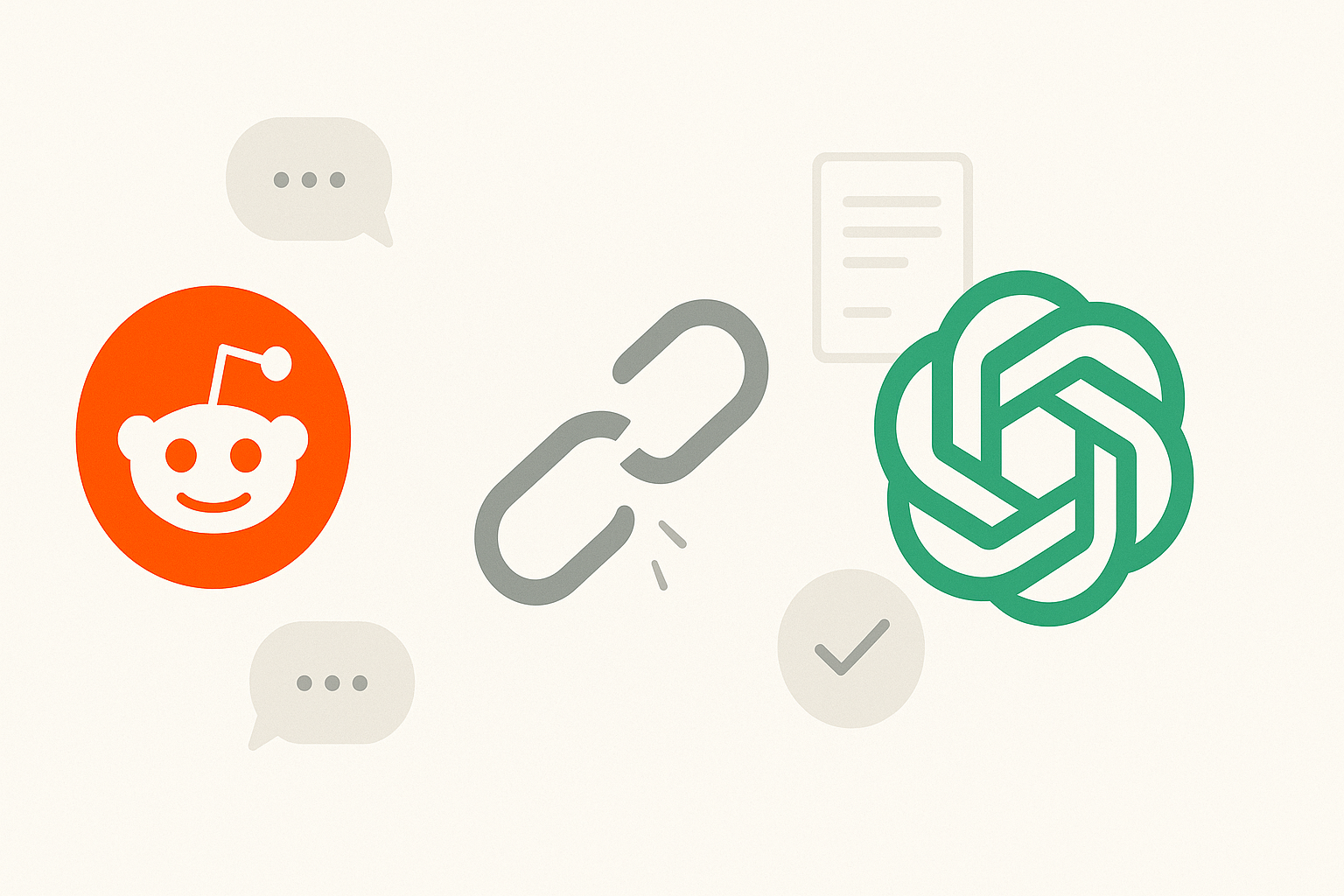ChatGPT appears to be giving Reddit the cold shoulder these days—a development that shouldn't surprise anyone watching the evolving relationship between AI systems and their training data sources.
Andrea Bosoni recently spotted what many of us have suspected for months: OpenAI's conversational AI has significantly decreased its Reddit citations when responding to queries. It's like watching a college freshman suddenly pretend they don't know their high school friends anymore.
Look, this shift makes perfect sense if you've been tracking the evolution of large language models. Reddit—that sprawling, chaotic marketplace of human conversation—initially served as the perfect training ground for teaching AI how actual people communicate. The platform offered everything: expertise, absurdity, humor, toxicity... the full spectrum of human expression.
But relationships change. They evolve. Sometimes they end.
I've been observing AI training methodologies since 2020, and this pullback reflects what I'm calling the "Reliable Source Premium" phenomenon. Early AI development prioritized quantity over quality—the goal was simply making machines sound human-like. Reddit, with its billions of interactions (ranging from Nobel-worthy insights to spectacular dumpster fires of misinformation), provided exactly the right mix.
It was digital fast food: not particularly nutritious, but abundant and broadly representative of how people actually talk.
The dynamics have shifted dramatically, though. As AI systems graduate from being clever party tricks to tools integrated into consequential decision-making processes, tolerance for hallucination and misinformation approaches zero. Suddenly, sounding human becomes necessary but wildly insufficient.
(Anyone who's received confidently wrong information from an AI system knows exactly what I'm talking about.)
This transition points to something bigger—what we might call the "Great Verification Pivot." AI companies are realizing their long-term value proposition depends on trustworthiness, not just mimicry. It parallels what happens in financial markets when speculative assets transition to being valued on fundamentals rather than hype.
The implications? Fascinating.
Consider the emerging market for training data: verified, accurate information suddenly commands a premium, while the value of undifferentiated conversational data—Reddit's specialty—declines. It's economics 101 playing out in the information space.
There are tradeoffs, of course. That quirky, occasionally brilliant randomness that Reddit injected into AI responses might diminish. This creates a new opportunity—AI systems that balance reliability with the creative unpredictability that makes human conversation engaging.
For Reddit itself, this presents an existential question. The platform has essentially been giving away valuable training data for years. As that data becomes less valuable to AI developers, what's Reddit's move? Pivot toward being a source of verified information? Or double down on being the internet's rowdy town square?
The most telling aspect of this development is what it reveals about AI systems' lifecycle. They begin by learning how to talk from the broadest possible sample of human conversation. Then, as they mature, they confront a harder challenge: learning how to be right.
It's rather like watching a teenager suddenly realize their coolest friends might not have the best advice for life decisions...
For those of us observing the AI industry (and I've had a front-row seat covering these developments since their inception), this shift signals something crucial: we're entering the accountability phase. The wild west days of AI training are ending. The market is beginning to demand receipts.
And honestly? In a world where my retirement account and medical diagnoses might soon depend on these systems, that seems like a development worth encouraging—even if it means slightly less entertaining responses about what happens when you cross a penguin with a potato.
